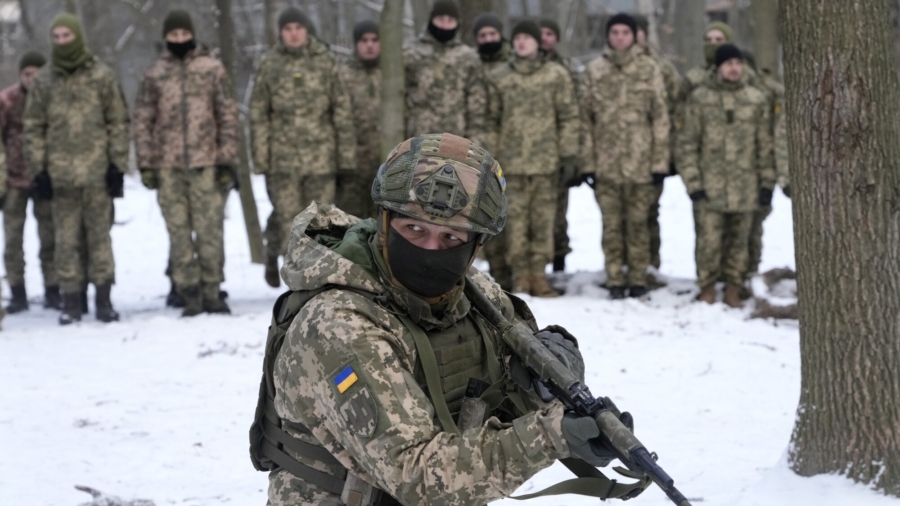Internal destabilization is a bigger issue for Ukraine at present than a potential Moscow-led invasion, Ukraine’s national security secretary said on Tuesday.
According to state media outlet Ukrinform, Ukraine’s National Security and Defense Council Secretary Oleksiy Danilov told reporters that Russia is benefiting from internal destabilization as tensions mount over a possible Moscow-led invasion.
“Today, according to all intelligence reports that coincide with those of the United States, Britain, and other partners, internal destabilization is No. 1 issue,” said Danilov, at a briefing after a National Security and Defense Council meeting, according to the news outlet.
“Without internal destabilization, the Russians have nothing to do here. They bet on the issue of internal destabilization,” said Danilov, according to the news outlet.
Destabilization within the country serves to sow panic among the population, which in turn, causes the national currency to plunge—further damaging Ukraine’s economy, he said.
Danilov’s comments come as tensions escalate over a potential invasion by Russia. Western officials estimate Russia has amassed about 100,000 troops near the Ukraine border, while Ukrainian officials have estimated as many as 127,000 Russian troops are stationed at the border.
On Monday, White House press secretary Jen Psaki said U.S. citizens in Ukraine should leave the country immediately, noting that there are no plans for a “departure or an evacuation” for American citizens and diplomats from Ukraine in the event of an invasion.
“We are conveying very clearly now that now is the time to leave and that there are means to do that,” Psaki said.
Meanwhile, U.S. Secretary of State Antony Blinken on Wednesday set out a diplomatic path to address sweeping Russian demands in Eastern Europe, as Moscow held security talks with Western countries and carried out military drills.
In a written response to Russia’s demands delivered in person by its ambassador in Moscow, the United States repeated its commitment to upholding NATO’s “open-door” policy, while offering a “principled and pragmatic evaluation” of the Kremlin’s concerns, Blinken said.
Blinken spoke to Chinese Foreign Minister Wang Yi about Ukraine on Wednesday, highlighting the global security and economic risks that could stem from Russian aggression, the State Department said.
Russia has denied it is planning an invasion, but has demanded NATO pull back troops and weapons from Eastern Europe and bar its neighbor Ukraine, a former Soviet state, from ever joining the alliance. Washington and its NATO allies reject that position but say they are ready to discuss other topics such as arms control and confidence-building measures.
Russia seized control of Ukraine’s Crimea Peninsula in 2014 and Ukraine’s Donbas region has since seen violence that has taken more than 14,000 lives. The region is now under de facto control by Russia-backed separatists.
From The Epoch Times


